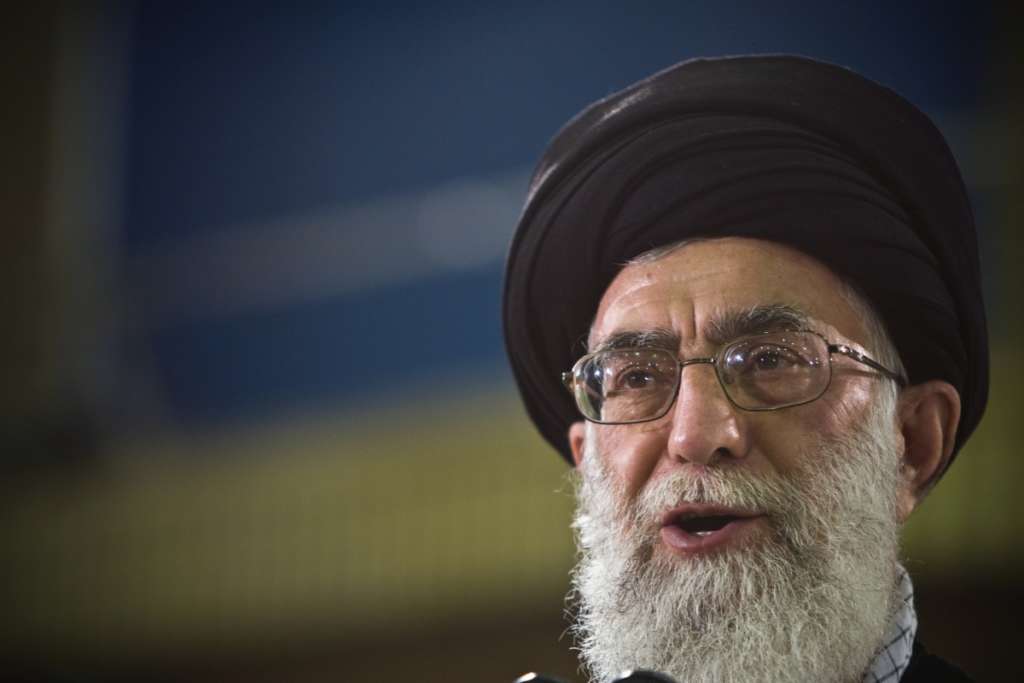London- Iran’s Supreme Leader Ali Khamenei has accused the U.S. administration of violating the nuclear deal. He warned Wednesday that Tehran will retaliate if Washington renews sanctions next month.
Last week, the U.S. Congress approved a bill — with 419 votes in favor and one against – that voted to renew long-standing sanctions linked to Iran’s ballistic missile tests and human rights record that pre-date the controversy around Iran’s nuclear ambitions.
The 10-year sanctions must still be approved by the Senate and President Barack Obama by the end of the year.
Washington says these sanctions have nothing to do with the nuclear deal, but Iran says the continuing restrictions go against the spirit of the agreement, particularly since they have discouraged international banks from returning.
“The Joint Comprehensive Plan of Action (JCPOA) must not become a tool for pressuring the Iranian people,” Khamenei said.
“If these sanctions happen, it is absolutely a breach of the JCPOA,” he added, referring to last year’s deal with world powers under which sanctions were eased in exchange for curbs to Iran’s nuclear program.
“In the issue of the nuclear deal, the current administration has committed several violations, the latest of which is the renewal of the 10-year sanctions,” Khamenei said in a televised speech to thousands of members of the Basij Islamist volunteer militia.
If the sanctions extension goes into effect, Khamenei said, it would represent a “flagrant violation of the nuclear deal” to which Iran “will be sure to respond.”
The U.S. first passed its Iran sanctions law in 1996. In 2006, the law was renewed for an additional ten years.
On Tuesday, the Obama administration green-lighted the sale of more than 100 Airbus planes to Iran, the latest U.S. license granted permission to conduct commercial activity with Tehran following the nuclear deal.
Airbus needs Treasury Department approval for the sale because at least 10 percent of the plane’s components are American-made.
Hoping to replace its aging fleet of 1970s aircraft, Iran has agreed to purchase tens of billions of dollars’ worth of planes from Airbus and its American competitor, Boeing.
The proposed sale may involve the purchase and leasing of more than 200 aircraft, which could generate thousands of new jobs, according to Democrats who opposed the legislation.
Republicans, however, decried the sale of aircraft to a country they say is the leading state sponsor of terrorism and has flouted United Nations resolutions by testing ballistic missiles.
The Treasury has defended the sale, saying the licenses granted to Boeing and Airbus contained “strict conditions to ensure the planes will be used exclusively for commercial passenger use and cannot be resold or transferred to a designated entity.”
However, the Boeing and Airbus deals rest on precarious ground.
